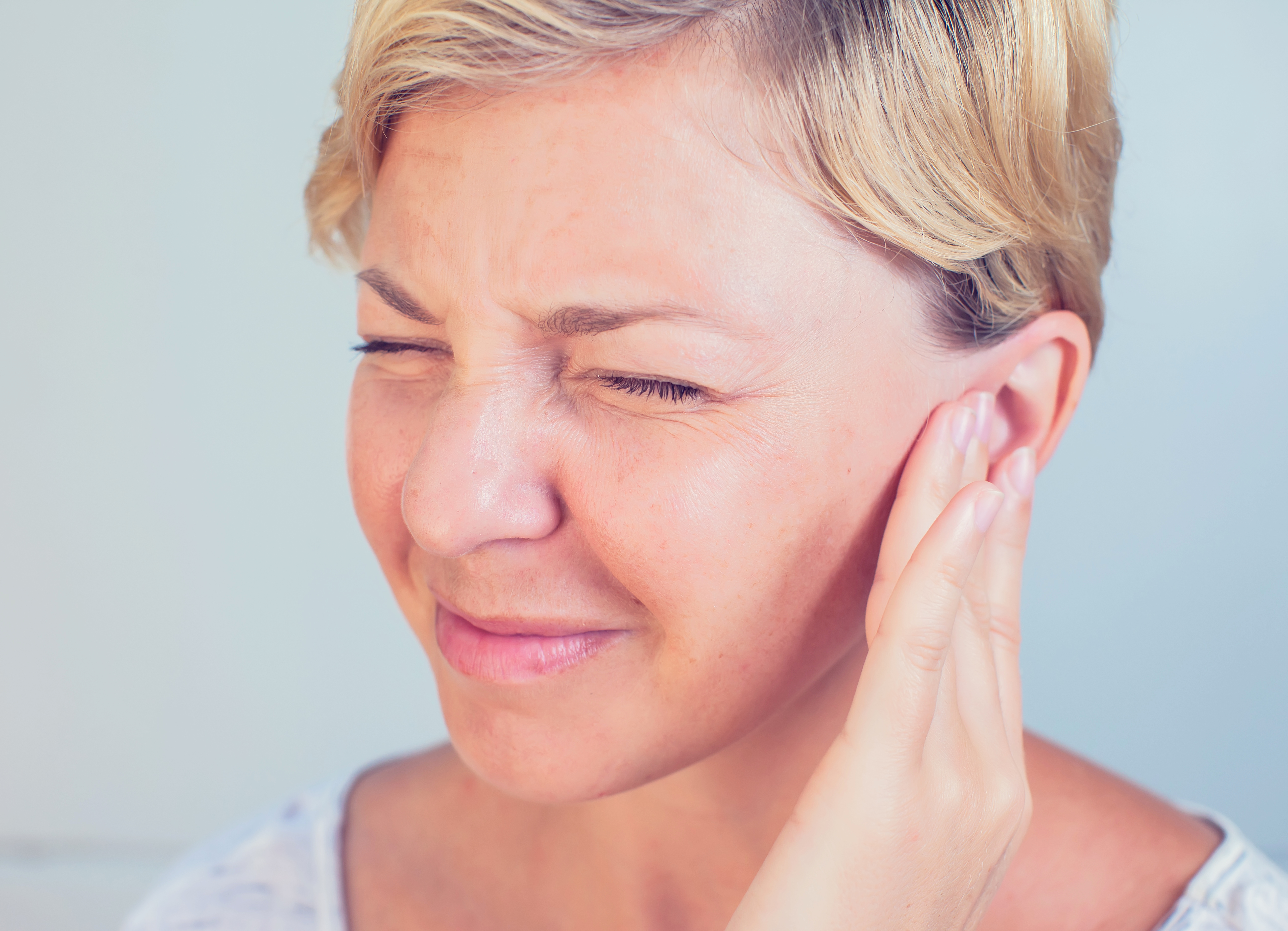Meniere’s disease - signs, symptoms and how do you treat it?


If you're experiencing ringing in your ear, hearing loss and dizziness, you may be suffering from a condition called Meniere’s disease.
What is Meniere’s disease?
Meniere’s disease is a condition that comes on for no known reason but can cause hearing loss, vertigo, tinnitus and pressure inside the ear.
Meniere’s disease is a condition estimated to affect one in 1,000 people in the UK. The disorder affects everybody differently, and for different periods of time.
According to General Practitioner Dr Jeff Foster, “Meniere's disease is a disorder of the inner ear caused by a change in fluid pressure in the areas that help us balance. It affects men and women equally and symptoms usually begin when people are aged between 30 and 50".
Causes of Meniere’s disease
The exact causes of Meniere’s disease are unknown, but it is thought to be caused by an increase of pressure in the ear due to unbalanced and abnormal fluid in the inner ear.
Although the exact cause of the condition is unknown, Dr Foster explains that “food allergies, autoimmune disease, like lupus or rheumatoid arthritis, family history” may increase the risk of developing the disorder.
Dr Foster also suggests that "there is an association between chronic migraine and Meniere’s disease", although there is no evidence to support this claim.
GoodtoKnow Newsletter
Parenting advice, hot topics, best buys and family finance tips delivered straight to your inbox.
How long does a Meniere’s attack last?
Meniere’s disease is episodic in nature. Attacks are sudden and often unpredictable. Generally, the severity of Meniere’s symptoms differ from person to person, but usually individuals experience more attacks of the disorder during the first few years of suffering with Meniere’s disease, and then Meniere's attacks decrease in frequency over time.
Some people will experience attacks over a period of days, whereas others may experience an isolated attack that only occurs every one in a while. Dr Foster said, “Acute attacks last on average from two to three hours, and patients usually get six to 12 bouts per year.”
Common Meniere's symptoms include
• Periodic episodes of rotary vertigo – vertigo is a sensation where you feel like the environment or you are spinning.
• Dizziness and feeling sick.
• Fluctuating or progressive hearing loss.
• Tinnitus – hearing sounds from inside yourself, usually buzzing, humming, grinding, hissing and whistling.
• A sensation of fullness or pressure in one or both ears.
How to handle a Meniere's attack
If you feel like you are going to experience a sudden Meniere's attack, it’s important to move yourself to a comfortable and safe space before your symptoms start.
Get yourself into a position that you feel comfy in and keep as still as possible. If you do have to move, move slowly, do not take sudden head moments, and keep your eyes fixed on still objects.
During an attack, make sure you have your prescribed medication to hand. The sooner you feel an attack coming on, the sooner your recommended treatment should be started. This might prevent the condition from progressing into a severe attack.
Tips for coping with vertigo
• According to the Meniere's Society website, in the morning, rise from bed slowly to give your senses time to adjust to being upright.
• It's important to plan your day with a short list with plenty of breaks if you feel tired.
• Go for a short walk. Walking helps your blood circulation as well as building confidence.
• When shopping in a supermarket. Focus on placing single items into the trolley at regular intervals to give your eyes and brain a break. Walk around the shops at a slow pace and stop frequently.
• Rest before and after any activity during the day.
• Before bed, listen to a relaxing classical music. Use night lights to guide you to the bathroom during the night. Move furniture to give yourself a clear route.

Are there different stages of Meniere’s disease?
According to Dr Foster there are three stages of Meniere’s disease, but not all patients reach stage three.
Stage one: Early-stage – Symptoms are predominantly vertigo attack, which are sudden and unpredictable. Hearing worsens and tinnitus increases. There is good recovery between attacks. This is the most common form of Meniere’s disease and most patients suffer with this stage only.
Stage two: Middle-stage – Sufferers experience continuing episodes of vertigo. There may be giddiness before and after attacks. Hearing loss develops and the tinnitus worsens and becomes more constant. Periods of remission vary and they may last several months.
Stage three: Late-stage - Hearing loss increases and vertigo lessens. Tinnitus becomes constant and very debilitating.
When should you see a doctor?
Dr Foster said, “Decision to see a doctor should be based on severity and frequency of symptoms, as it is important that if it progresses, underlying causes are looked for, and impact on life can be mitigated.”
If you do feel like you are experiencing vertigo, hearing loss and tinnitus it is important to see your GP. To diagnose the condition as Meniere's disease, you need to be experiencing all three of these symptoms.
Your GP may carry out a physical examination to rule out other possible causes of your symptoms such as migraines, a viral infection or an ear infection. In most cases you will be referred to an Ears, Nose and Throat specialist at your local hospital who will carry out hearing tests and balance assessments.

Meniere’s disease treatments
Possible treatments include:
• Medicines to treat the symptoms and prevent attacks
• Changes to your eating habits, such as a low-salt diet
• Balance training
• Relaxation techniques
• Surgery
If you think you are suffering from acute attacks of Meniere’s disease you should visit your GP. Although there is no direct cure for the condition, your GP can prescribe medication to manage your symptoms and reduce the effect the disorder has on your daily life.
Dr Foster said that GPs usually prescribe types of antihistamines such as cyclizine, or promethazine that will alleviate the symptoms of vertigo and nausea, as well as frequency of the attacks.
“In severe cases patients are admitted for IV fluid hydration and given anti-inflammatory steroids", Dr Foster explains.
If you are a recurrent sufferer of Meniere’s disease, Dr Foster suggests making some small lifestyle changes such as a “low-salt diet, avoiding caffeine, chocolate, alcohol and tobacco.” These changes are good for your overall health and may reduce your symptoms.
He also suggests that excessive fatigue appears to be a trigger factor in some patients so it is important to have a good sleep routine, however there is no evidence for this.
In rare cases individuals may undergo surgical treatment, however this depends on how seriously you are suffering and whether one or both of your ears are affected.
Can you drive or fly if you suffer from Meniere’s disease?
You can fly when suffering from Meniere’s disease. However, for driving, it is legal obligation to inform the DVLA that you are suffering with the condition. The DVLA will send your GP a questionnaire to get more information about your disorder.
Dr Foster said, “Factors the DVLA will take into consideration include whether your Meniere's attacks are preceded by a warning, how disabling they are, whether medication has been started and whether the condition is under control.”

Sibelle Mehmet is a Junior Digital Writer at Goodto.com. She joined the team in April 2019 and was her first job since completing a MA in Magazine Journalism at City, the University of London in the summer of 2019. Sibelle previously interned at a number of national titles including OK!, Heat, Closer, Mother & Baby, and The Times Newspaper magazine. She's written extensively about the latest celebrity, showbiz, and royal news.